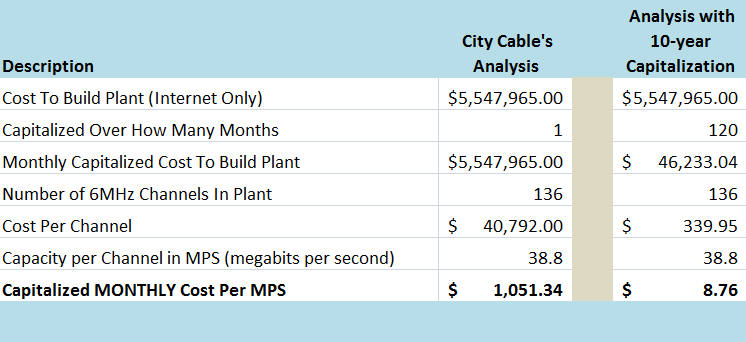How Did The Injunction Hearing Go?
First, I know that many have been praying for our staff and company and we appreciate and are humbled by the outpouring.
The hearing on Friday went very well. We told our story and supported it with facts. We were also able to shed light on many of the city’s allegations which made our case even stronger.
We won’t know for at least a week if the preliminary injunction is granted. If it is, then we will be able to stay on the Cable Network until we have our day in court before a jury of 12. We have taken precautions in case the injunction is denied, you can read about that in the post “What Happens if SEMO.net Loses the Injunction.”
I felt the DAR article by David Silverberg in Sunday’s paper did a very good job of giving an overview of the hearing. Here are some highlights from the DAR article plus a my comments:
Becker testified he started his business in 1995 and has been using the City’s infrastructure since 2002 when there was an 8 megabit limit on Internet service providers. On February 3, 2006 he received an email from Michael Pry, City Cable’s system administrator, “Confirming there was no restriction at the present time” on using more megabits as the City expanded its system.
…
When asked about what he owed the city, Becker testified he paid the bills “under protest” as provided in City Cable policy and only paid “smaller amounts.”
Comment—According to the City’s policy, once disputed, the disputed amounts are no longer due until the dispute has gone through the entire dispute process. The $118,000 that has accrued which SEMO.net is being sued for by the City has been formally disputed. Back in January, the City’s attorney asked to temporarily suspend the dispute process which we granted but we have been refused the opportunity to resume that process since. Once it was clear they were not going to follow that dispute policy AND were going to remove us from the network I had to bring legal action.
…
[SEMO.net’s attorney] questioned Bagby about a comment in the Daily American Republic about the city being able to offer services the Internet service providers couldn’t afford.
Comment—the comments Mr. Bagby was asked to verify from the DAR were from Nov 15, 2001:
Though we did not bring this into the case, Mr. Bagby also stated in this article:
…
[Dan] Coffman [a CPA from Poplar Bluff] said City Cable, “Doesn’t capitalize it’s asset and doesn’t amortize the life of the asset.” He said the Internet plant “should be amortized over a period of years.” [The] capitalized monthly cost per megabit per second was only $8.76 compared to the City Cable’s figures of $1051.34.
Comment—we presented the following spreadsheet to the court after Coffman’s statements:

